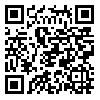BibTeX | RIS | EndNote | Medlars | ProCite | Reference Manager | RefWorks
Send citation to:
URL: http://jccnc.iums.ac.ir/article-1-102-en.html
2- Department of Management and Information, Faculty of Management and Information, Iran University of Medical Sciences, Tehran, Iran.
3- Department of Biostatistics, School of Public Health, International Campus, Iran University of Medical Sciences, Tehran, Iran. ,
Background: Blood transfusion faults and its consequences are major concerns of health care systems. This study aimed to determine the effects of workshop and multimedia training methods on nurses’ knowledge and performance about blood transfusion.
Methods: It was a controlled quasi-experimental study. Sampling was conducted. Data were collected from 37 participants in three hospitals during 2016 by a three-part questionnaire consisting of nurses’ demographic information, routine blood transfusion knowledge (RBTQ) questionnaire, and Purfarzad-performance-evaluation questionnaire. Statistical analyses were conducted using SPSS V. 20.
Results: Nurses’ knowledge and performance levels in workshop and multimedia groups increased from the average to the good level. No significant differences was found between workshop and multimedia groups regarding knowledge (P = 0.474) and performance scores (P = 0.984). Results of paired T-Test showed no significant differences before and after knowledge evaluation in control group (P = 0.262), while it revealed significant differences in workshop and multimedia group so that, the knowledge scores level increased from average to good (P = 0.474). Mean (SD) performance scores in multimedia group were 70.36 (7.06) and 79.78 (0.91) before and after intervention, respectively. Therefore, before training the performance of groups was in average levels but they improved to the good levels after training (P = 0.984). Paired T-Test for workshop and multimedia groups before and after intervention revealed significant differences (P < 0.001).
Conclusion: This study showed that workshop and multimedia training methods are effective in promoting the nurses’ knowledge and performance. None of these two methods outweighed the other. One reason in this regard might be due to mutual connection between teacher and students, the possibility to ask and answer the questions, discussing in workshop method, and the possibility to repeat the concepts and regulate the pace of training based on individuals learning abilities in multimedia method.
Received: 2016/06/4 | Accepted: 2016/09/2 | Published: 2016/10/1
| Rights and permissions | |
 |
This work is licensed under a Creative Commons Attribution-NonCommercial 4.0 International License. |





